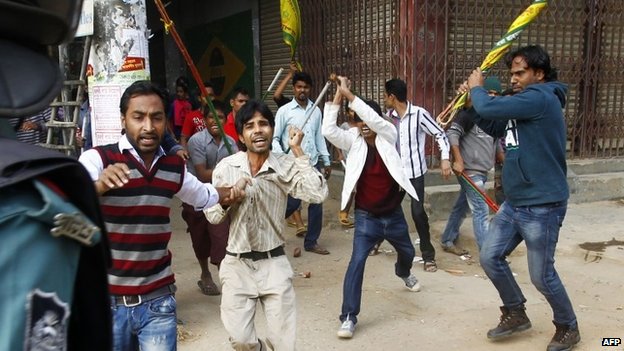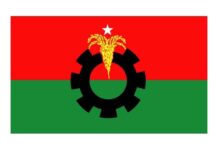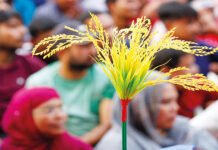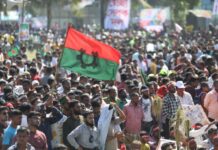
Bangladeshi opposition leader Khaleda Zia has called on her supporters to enforce a transport blockade after two of her activists were shot dead during clashes with pro-government crowds.
She urged members of her Bangladesh Nationalist Party (BNP) to halt road, rail and river transport indefinitely.
The shootings in the northern town of Natore came on the first anniversary of disputed general elections.
Both parties have called for rallies despite a ban on demonstrations.
Security forces are preventing Ms Zia from leaving her party offices in the capital Dhaka. Police say they want to stop violence.


Ms Zia was forced to issue her call for mass protests from inside her office, having been stopped from leaving since police cordoned off the area on Saturday night.
Ms Zia and her arch rival, Prime Minister Sheikh Hasina, have frequently called for general strikes and blockades when in opposition.
When the army has not been in government, the pair have alternated in power for most of the last two decades.
On Monday, the authorities parked trucks laden with sand and bricks outside her office in what correspondents say was an effort to prevent her from spearheading anti-government protests in person.
While the opposition leader was barred from leaving her offices, armoured vehicles equipped with water cannon also stopped her supporters from entering or leaving the premises.

A number of people have been injured in clashes in the capital and about half a dozen other towns, reports say.
The BNP and other opposition parties boycotted last year’s election, saying it would be rigged.
They were angry that Sheikh Hasina, who has been in power since 2009, refused to stand aside to make way for a neutral caretaker administration to oversee the election.
Dozens of BNP workers have disappeared since last year’s election, with human rights groups blaming the government – although it denies this.
An adviser to the prime minister insisted on Sunday that Mrs Zia had not been locked up but had been given “enhanced security protection”.
Source: BBC









